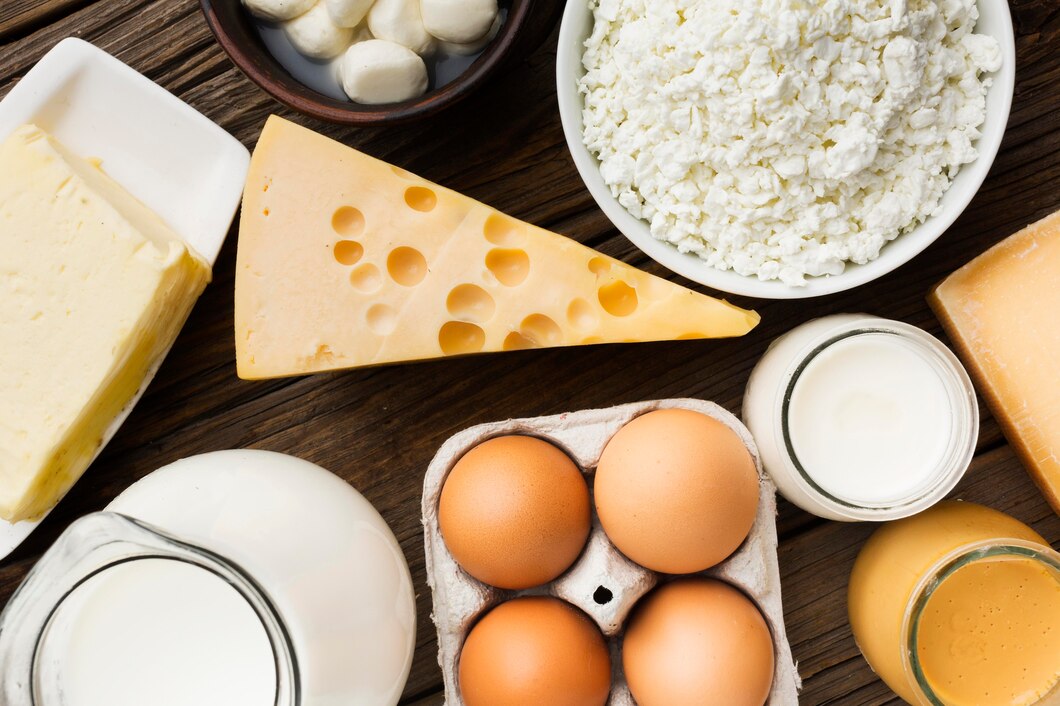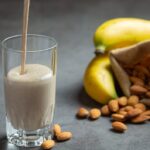Eczema, also known as atopic dermatitis, is a chronic skin condition characterized by itchy, inflamed, and irritated skin. For many South Africans living with eczema, diet plays a crucial role in managing symptoms. Certain foods can trigger or worsen eczema flare-ups due to their inflammatory or allergenic properties. Below are 20 foods that South Africans with eczema should consider avoiding to help manage their condition:
1. Dairy Products
- Dairy is one of the most common triggers for eczema. Foods like milk, cheese, yogurt, and butter can cause inflammation and worsen eczema symptoms in some people.
2. Eggs
- Eggs, especially the egg white, are known allergens that can trigger eczema flare-ups. Consider egg substitutes or alternatives if you find that eggs worsen your symptoms.
3. Wheat and Gluten
- Wheat and other gluten-containing grains can cause inflammation in individuals with gluten sensitivity, potentially worsening eczema. Alternatives include gluten-free grains like rice, quinoa, and millet.
4. Soy Products
- Soy is a common allergen and can trigger eczema in sensitive individuals. Avoid soy milk, tofu, and other soy-based products if they seem to exacerbate your symptoms.
5. Nuts
- Certain nuts, especially peanuts and tree nuts like almonds and walnuts, can trigger allergic reactions and eczema flare-ups. Opt for seeds like sunflower or pumpkin seeds as alternatives.
6. Shellfish
- Shellfish, including prawns, crabs, and lobsters, are common allergens. These can cause severe allergic reactions and worsen eczema.
7. Citrus Fruits
- Citrus fruits like oranges, lemons, limes, and grapefruits are acidic and can cause irritation in people with sensitive skin, potentially worsening eczema.
8. Tomatoes
- Tomatoes are highly acidic and can irritate the skin, leading to eczema flare-ups. This includes raw tomatoes, tomato sauce, and other tomato-based products.
9. Processed Foods
- Processed foods, especially those high in artificial additives, preservatives, and colorings, can trigger inflammation and eczema. These include snacks like crisps, sweets, and packaged meals.
10. Spicy Foods
- Spicy foods can cause inflammation and irritation in some people, potentially triggering eczema symptoms. South Africans who love their peri-peri and hot sauces should be cautious.
11. Alcohol
- Alcohol can dehydrate the skin and trigger inflammation, leading to eczema flare-ups. Be particularly mindful of wine, beer, and spirits that contain added sugars or allergens.
12. Sugar and Sweets
- High sugar intake can cause inflammation and worsen eczema symptoms. Reducing the consumption of sugary foods and drinks can help manage the condition.
13. Red Meat
- Red meat, particularly fatty cuts, can promote inflammation in the body. Limiting consumption of beef, lamb, and pork can be beneficial for those with eczema.
14. Corn and Corn Products
- Corn is a common allergen and can trigger eczema symptoms in sensitive individuals. This includes corn on the cob, cornflakes, and products containing corn syrup.
15. Soy Sauce
- Soy sauce contains both soy and gluten, making it a double trigger for those with eczema. Consider using coconut aminos as a soy-free and gluten-free alternative.
16. Peppers
- Peppers, especially hot varieties like chili and jalapeño, can cause irritation and exacerbate eczema symptoms. Opt for milder alternatives like bell peppers, but monitor for any reactions.
17. Berries
- Some berries, particularly strawberries, can trigger allergic reactions and eczema flare-ups. Consider low-allergen fruits like apples or pears as substitutes.
18. Coffee
- Coffee is a stimulant that can dehydrate the body and potentially exacerbate eczema. Caffeine can also increase stress levels, which is a known trigger for eczema.
19. Coconut
- While coconut oil is often used to soothe eczema, some people are allergic to coconut. Coconut water, milk, and flesh should be avoided if they trigger your symptoms.
20. Food High in Histamines
- Histamine-rich foods, such as aged cheeses, smoked meats, and fermented foods, can trigger eczema in some individuals. Limiting these foods can help reduce flare-ups.
While not everyone with eczema will react to all of these foods, it’s important for South Africans suffering from this condition to be mindful of their diet. An elimination diet, where you remove potential triggers from your diet and slowly reintroduce them one by one, can help you identify which foods are exacerbating your eczema. Always consult with a healthcare provider or a nutritionist before making significant changes to your diet, especially if you have other health conditions or dietary restrictions.








